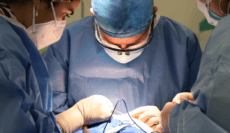Medical malpractice
Two-thirds of Cardiologists Involved In Malpractice Lawsuits

A cardiologist is a physician who specializes in treating heart-related illnesses and conditions. In the United States, cardiologists are crucial to the wellbeing of millions of Americans, as heart disease is a leading cause of death; however, medical malpractice lawsuits against cardiologists have increased nearly 91% over the past decade.
The Centers for Disease Control and Prevention (CDC) reports that every 37 seconds, an American dies from heart disease, totaling about 647,000 deaths annually. In addition to heart disease, cardiovascular health conditions like heart attacks also plague the nation. Every year, around 805,000 Americans suffer a heart attack; one in five of those heart attacks will be silent, meaning the individual is not aware they even suffered a heart attack.
Considering these statistics, it’s evident patients are in dire need of competent cardiology care to properly assess and treat urgent heart health issues. However, research data suggests cardiology is a leading specialty for medical malpractice in hospitals across the country.
Ineffective Treatment Plans
Researchers conducted an analysis of 1,538 cardiology medical malpractice claims from 2006 to 2015 and found startling statistics concerning negligence among physicians, healthcare staff, and systems. In majority of cardiology malpractice suits, defensive medicine was at the forefront of preventable issues that caused patients further pain or even led to wrongful death.
What is Defensive Medicine?
Defensive medicine is a phrase used to describe a physician’s choice to order unnecessary testing or treatment as a means to protect themselves from potential malpractice lawsuits. The irony of defensive medicine is it has actually caused an influx of malpractice suits. Aside from this unethical treatment strategy going against the best interest of the patient, defensive medicine adds to the vicious cycle of rising healthcare costs. Defensive medicine has been responsible for an estimated additional $850 billion annually in the United States, roughly 34% of annual healthcare costs.
As patient’s pocketbooks know, rising healthcare costs means increased financial responsibility on behalf of the patient, not the hospital or physician. Therefore, patients seeking urgent cardiology-related treatment may pay for unnecessary testing and prescriptions that do not aid in their recovery, and only increase their medical bills. While defensive medicine is at the root of a majority of the malpractice claims analyzed, many other factors also put patients’ lives at risk.
Leading Causes of Cardiology Malpractice
In addition to defensive medicine, diagnostic errors and mistreatment were also top causes of cardiology malpractice suits. Diagnostic errors included either misdiagnosis or delayed diagnosis, both of which are extremely dangerous considering the urgency involved with the majority of cardiology-related cases. Other catalysts toward cardiology malpractice damages include:
- Miscommunication between cardiologist and healthcare staff
- Improper monitoring of patients
- Equipment malfunctions
Anytime a patient has to endure treatment for a cardiology-related illness or condition brings about a stressful situation. The added pressure of questioning whether or not their cardiologist has their best interests in mind only exacerbates already present stress. Patients and their loved ones deserve the peace of mind that comes with knowing they will be treated without any extraneous testing or treatment designed to avoid potential lawsuits.
Philadelphia Medical Malpractice Attorneys
Heart disease and cardiologic conditions affect millions of Americans annually. Given the commonality of cardiology-related illnesses and conditions, there is a great likelihood you or a loved one may need to seek medical care for a cardiology need at some point in time. Patients and their loved ones have the right to receive medical care that meets designated standards, and should not have their treatment influenced by the specter of potential lawsuits. If you or a loved one were injured as the result of cardiology malpractice, contact our hospital negligence attorneys immediately to discuss your options at no charge. Time limitations apply to your potential claims, so do not delay in contacting a lawyer to get help with your claims.








